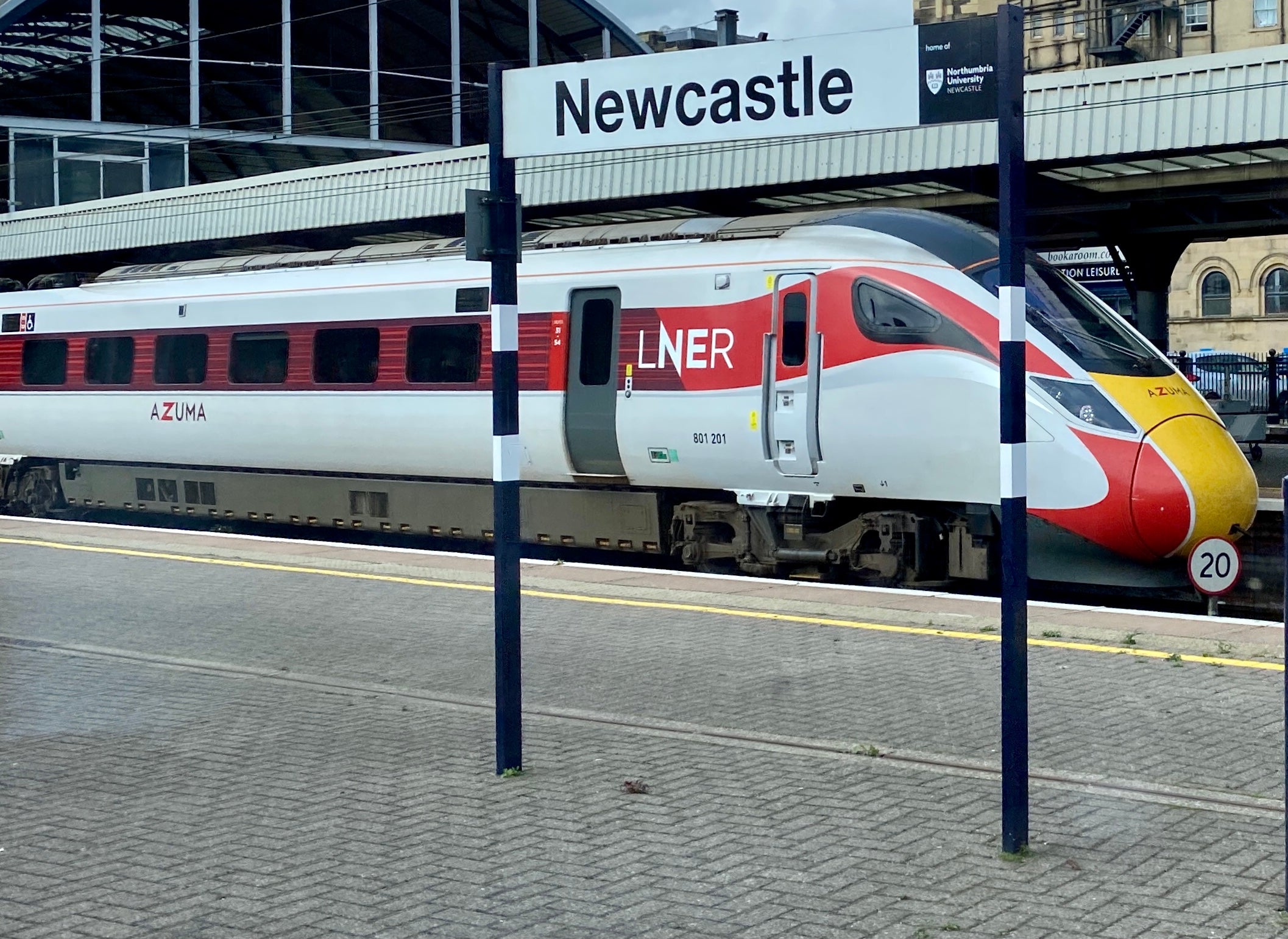Wacky rail races along Britain’s broad shoulder
The Man Who Pays His Way: New train operator Lumo will make the Newcastle-Edinburgh portion of the East Coast main line the most competitive stretch of track in western Europe

Your support helps us to tell the story
From reproductive rights to climate change to Big Tech, The Independent is on the ground when the story is developing. Whether it's investigating the financials of Elon Musk's pro-Trump PAC or producing our latest documentary, 'The A Word', which shines a light on the American women fighting for reproductive rights, we know how important it is to parse out the facts from the messaging.
At such a critical moment in US history, we need reporters on the ground. Your donation allows us to keep sending journalists to speak to both sides of the story.
The Independent is trusted by Americans across the entire political spectrum. And unlike many other quality news outlets, we choose not to lock Americans out of our reporting and analysis with paywalls. We believe quality journalism should be available to everyone, paid for by those who can afford it.
Your support makes all the difference.Simon Calder, also known as The Man Who Pays His Way, has been writing about travel for The Independent since 1994. In his weekly opinion column, he explores a key travel issue – and what it means for you.
“Combining history and heritage with hustle and bustle, traditional farmers’ markets lie around one cobbled corner and trendy bars lie around another” – that is how Visit Northumberland sells Morpeth. So far, to be frank, with little success.
Yet from next month, this market town of 14,000 people will become the envy of the region.
When the new Lumo budget train operator starts running between London and Edinburgh from 25 October, every one of its stylish new trans will stop at Morpeth. The town will have a nonstop 80-minute rail link with Edinburgh in one direction; in the other, a train link to London taking a little over three hours, with a single stop in Newcastle.
(In the possibly unlikely event that the townspeople of Morpeth are seized with an urge to visit the trendy bars of Stevenage, a couple of the evening trains will also call at the Hertfordshire new town.)
The new “open access” train operator, part of First Group, is bestowing fame and fortune on Morpeth’s cobbles. Lumo will also help make the Newcastle-Edinburgh portion of the East Coast main line the most competitive stretch of track in western Europe.
On the day that Lumo starts running its one-class-only trains, the passenger turning up at Newcastle station around lunchtime with a view to reaching Edinburgh will face a bewildering choice.
At 1.35pm, CrossCountry departs for the Scottish capital, with calls at three handsome coastal towns: Alnmouth, Berwick-upon-Tweed and Dunbar. Eight minutes later, a nonstop LNER service sets off in hot pursuit.
Barely is it under way when, at 1.47pm, Lumo gives chase – pausing for a moment at Morpeth.
Seven more minutes, and a LNER reinforcement is off, with a stop (no, not for border formalities) at Berwick.
Finally, at 2.21pm, here comes TransPennine Express – the fifth Newcastle-Edinburgh train in less than an hour, picking up stragglers at Morpeth along the way. By 3.47pm, when it arrives in the Scottish capital, Waverley station should resound with Geordie accents.
A remarkable frequency, better than every 10 minutes at times, between two great cities along Britain’s broad northeastern shoulder. But is it desirable or viable?
You may deplore the potential waste of resources, and taxpayers’ money. LNER, the dominant train operator on Britain’s flagship rail route, is state-owned – and formidably well run as a profitable business.
In contrast, TransPennine Express is a First Group operation. But unlike sister company Lumo, which will be a stand-alone enterprise set on profit, TransPennine is contracted by the Department for Transport (DfT) to operate prescribed services. Likewise CrossCountry, part of Arriva, itself a subsidiary of German Railways.
I am certain that on Lumo’s first day, 25 October, and for many months afterwards, a large proportion of seats will be empty. After all, the Rail Delivery Group has just revealed that commuting by train has dropped by two-thirds compared with pre-pandemic levels.
To cut the wastage – and environmental damage – you can make a case for the state-run and supported service to be cut back. If CrossCountry and TransPennine stopped short at Newcastle, then passengers from Birmingham and Manchester could just change trains to LNER.
Yet I prefer to see these hyper-competitive “wacky races” as potentially heralding a new era of enthusiasm for rail travel.
With a one-way fare (only on Lumo, for now) of under £5 for 124 miles of rail travel, trains will out-compete driving on the A1 – as well as offering a far faster and more comfortable journey.
Every passenger in daylight hours will delight at the corrugated coastline that enriches the northernmost reaches of England, followed by a mighty curve at Dunbar to race along the southern shore of the Firth of Forth.
And, for those travelling after dark and with time to pause, there are always the trendy bars of Morpeth to enjoy.
Join our commenting forum
Join thought-provoking conversations, follow other Independent readers and see their replies
Comments